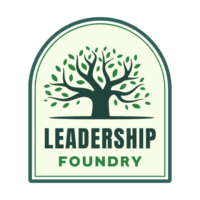In 2025, chaos isn’t a glitch—it’s the norm. AI accelerates, hybrid teams scatter, and global shocks ripple faster than ever. Leaders who cling to rigid plans drown; those who master agility soar. Deloitte’s 2024 Resilience Report finds agile organizations adapt 30% faster to disruption, outpacing peers in growth. At Leadership Foundry 360, we see agility as the must-have skill for today’s leaders—nimble, not brittle. Let’s unpack why it’s the way forward, real-world proof, the talent trap it sets, and three strategies to own it.

Why Agility Is Non-Negotiable in 2025
The modern era doesn’t pause. Supply chains snap, AI rewrites roles (How AI Is Transforming Leadership in 2025), and Gen Z redefines work (Is Gen Z Rewriting Your Leadership Rules?). Agility—adapting fast, pivoting with purpose—turns chaos into opportunity. It’s not about speed alone; it’s about clarity amid the storm. As Mastering Change Management shows, stability starts with flexibility.
Real-Life Examples: Agility in Action
1: Reed Hastings at Netflix
When streaming disrupted DVDs, Netflix’s Reed Hastings didn’t freeze—he pivoted. By 2025, his agile leadership has embraced AI to predict viewer trends, slashing churn by 15% (Forbes). During 2023’s writer strikes, he empowered remote teams to test micro-content—short films that spiked engagement 20%. Hastings’ agility? Subtract rigidity, add trust.

2: Mary Barra at General Motors
GM’s Mary Barra faced chaos—EV shifts, chip shortages—yet thrived. By 2025, her agile pivot to modular production cut delays 25%, outpacing rivals (Bloomberg). She flattened decision-making, letting diverse teams innovate fast—think How to Lead Effectively in Flat Organizations. Chaos became GM’s edge.
The Challenge: Agility vs. Talent Selection
Agility’s strength can snag leaders. Prioritizing adaptability sometimes blurs the “best talent” line. A nimble team might favor quick learners over deep experts, risking gaps in skill. As 5 Reasons Most Leaders Fail warns, chasing trends over substance falters. In 2025’s hybrid flux (How 360 Feedback Transforms Remote Teams), leaders ask: “Am I picking agility or excellence?”
3 Actionable Strategies to Master Agility
- Embrace Micro-Experiments:
Test small, fail fast. Hastings ran micro-content trials; you can too—pilot a new workflow for a week. Use AI tools like Tableau (Leading in the AI Era) to track results. Subtract perfectionism, add iteration. - Cultivate a Feedback Flywheel:
Agility thrives on input. Barra’s flat structure leaned on real-time insights—use 360 feedback to spot blind spots fast. Pair with 5 Tips for Giving Constructive Feedback Now. Subtract silos, add dialogue. - Anchor With EQ:
Chaos tests nerves. Emotional intelligence—self-regulation, empathy—keeps you steady (The EQ Edge). When talent debates flare, EQ picks adaptable and skilled players. Subtract panic, add heart.

Agility’s Talent Fix: Balance Over Bias
The talent trap isn’t fatal. Agile leaders don’t ditch expertise—they blend it with flexibility. Use data to vet skills (Tableau again), train for adaptability (Top 6 Strategies for Leadership Development in 2025), and hire for curiosity—your X-factor in chaos.
Agility in 2025 and Beyond
By 2030, agility will define survival. Gartner predicts 60% of firms will pivot strategies quarterly, driven by AI and climate shifts. Prep now: master micro-changes, lean on EQ (EQ Self-Assessment Checklist), and build teams that bend, not break.
Lead Through the Storm
Chaos isn’t your enemy—it’s your forge. Hastings and Barra prove agility turns uncertainty into triumph. Subtract the noise of old ways; add the clarity of nimble moves. This is your must-read moment—dive into Mastering Agility: Leading Teams Through Chaos and Change and grab our free (4 Change Management Planners to master your time!).
Tell us what’s your chaos edge? Share below.


